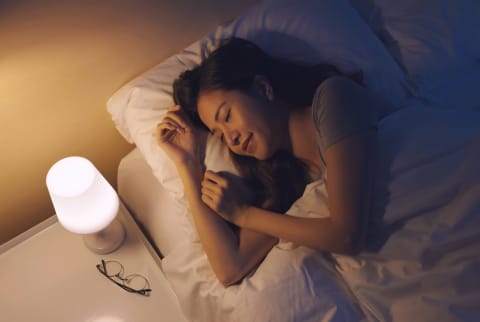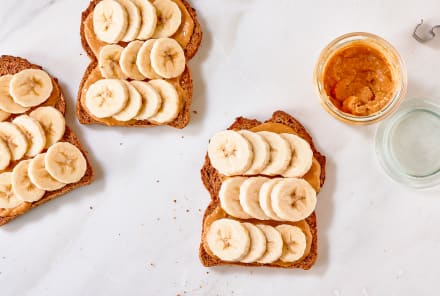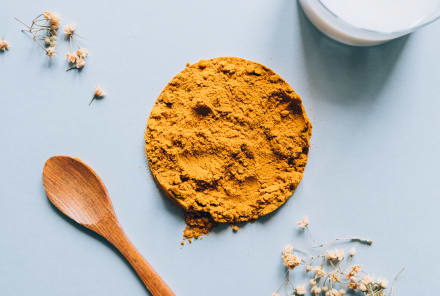Advertisement
16 Ways To Naturally Reset Your Sleep (For The Sake Of Your Health & Longevity)


When I was a medical student and resident, sleep was considered optional. Delivering 500 babies and working in the emergency department for overnight shifts fried my nervous system. I learned firsthand the dangers of sleep deprivation. Sleep, while it may seem superfluous, is essential to our health and longevity. The notion of "I'll sleep when I'm dead" may cause you an early death. It affects every aspect of our health, including our metabolism, weight, mood, and cognitive function.
Over the last 100 years, the average night of sleep has declined by an hour or two. Seventy million Americans1 suffer from sleep problems. Lack of sleep not only impairs our ability to concentrate and causes trouble learning, decreased attention to detail, and increased risk of motor vehicle accidents; research suggests that regularly sleeping for less than seven hours a night2 has negative effects on the cardiovascular, endocrine, immune, and nervous systems.
Side effects of sleep deprivation can include obesity, diabetes, heart disease, high blood pressure, anxiety, depression, dementia, alcohol abuse, stroke, and increased risk of developing some types of cancer3.
Sleep is essential for healing and repair and cellular cleanup and longevity. A newly discovered brain-cleaning system called the glymphatic system4 is essentially the lymph system of the brain and is necessary for cleaning up all the metabolic waste that accumulates every day.
Your muscles, organs, and brain need to repair each day. Your hormones and circadian rhythms must be in balance for health and longevity, and sleep is critical to maintaining that balance. If you want to understand the importance of sleep, you must read Matthew Walker's book, Why We Sleep.
Here's how to restore your natural sleep rhythm. It may take weeks or months, but using these tools in a coordinated way will eventually reset your biological rhythms:
- Practice the regular rhythms of sleep. Go to bed and wake up at the same time each day.
- Use your bed for sleep and romance only, not reading or television.
- Create total darkness and quiet. Consider using eyeshades and earplugs.
- Get grounded. Electromagnetic frequencies can impair sleep. I recommend turning off Wi-Fi and keeping all your electronic devices away from your bed. Create a charging station in a common area of your home and encourage all your family members to "check in" their devices before bed.
- Eliminate blue-light exposure for two to three hours before bed. Avoid computers, smartphones, tablets, and television two hours before bed. Avoiding blue-spectrum light after the sun goes down helps your brain reset for sleep and increases melatonin. Ideally, use blue-blocker glasses after sunset, a simple hack that pays sleep and health dividends.
- Avoid caffeine. It may help you stay awake during the day, but it interferes with your sleep.
- Avoid alcohol. It helps you get to sleep but causes interruptions in sleep and poor-quality sleep, something I have seen firsthand from data on my Oura Ring.
- Get regular exposure to daylight for at least 20 minutes daily. The light from the sun enters your eyes and triggers your brain to release specific chemicals and hormones like melatonin that are vital to healthy sleep, mood, and aging.
- Eat no later than three hours before bed. Eating a heavy meal prior to bed will lead to a bad night's sleep.
- Take a hot Epsom salt and aromatherapy bath with lavender oil. Raising your body temperature before bed helps to induce sleep. A hot bath also relaxes your muscles and reduces physical and psychic tension.
- Use herbal therapies. Try 100 to 200 mg of passionflower or 320 to 480 mg of valerian (Valeriana officinalis) root extract standardized to 0.2% valerenic acid one hour before bed.
- Take 200 to 400 mg of magnesium citrate or glycinate before bed. Magnesium is a powerful relaxation mineral for the nervous system and muscles.
- Other supplements and herbs can be helpful in getting some shut-eye. Try calcium, L-theanine (an amino acid from green tea), GABA, 5-HTP, and magnolia.
- Find guided relaxation, yoga nidra, meditation, and guided imagery options online and listen to them before bed. Any of these may help you get to sleep.
- Try binaural beats sound meditation, which synchronizes brain waves for deep sleep. You can find videos on YouTube. They can be used before bed or in the middle of the night to help you fall back asleep.
- Try my free Sleep Master Class.
If after trying these strategies you still struggle with sleep, please see a functional medicine practitioner who can determine whether things like food sensitivities, thyroid problems, menopause, fibromyalgia, chronic fatigue syndrome, heavy metal toxicity, stress, or depression is interfering with your sleep. You can find one at the website of the Institute for Functional Medicine. Consider getting tested for sleep disorders such as sleep apnea. Getting good sleep is essential for your health and longevity.
Adapted from YOUNG FOREVER by Mark Hyman, M.D. Copyright © 2023 by Mark Hyman, M.D. Used with permission of Little, Brown Spark, an imprint of Little, Brown and Company. New York, NY. All rights reserved.

5 Subtle Signs You Might Be Low In Omega-3 Fats & What To Do About It
Molly Knudsen, M.S., RDN

This Antioxidant-Rich Fruit Is A+ For Sleep & Recovery, Research Shows
Molly Knudsen, M.S., RDN

Which Is Healthier: One Drink Daily Or A Few Drinks On The Weekend?
Molly Knudsen, M.S., RDN

5 Subtle Signs You Might Be Low In Omega-3 Fats & What To Do About It
Molly Knudsen, M.S., RDN

This Antioxidant-Rich Fruit Is A+ For Sleep & Recovery, Research Shows
Molly Knudsen, M.S., RDN

Which Is Healthier: One Drink Daily Or A Few Drinks On The Weekend?
Molly Knudsen, M.S., RDN

5 Subtle Signs You Might Be Low In Omega-3 Fats & What To Do About It
Molly Knudsen, M.S., RDN

This Antioxidant-Rich Fruit Is A+ For Sleep & Recovery, Research Shows
Molly Knudsen, M.S., RDN

Which Is Healthier: One Drink Daily Or A Few Drinks On The Weekend?
Molly Knudsen, M.S., RDN

5 Subtle Signs You Might Be Low In Omega-3 Fats & What To Do About It
Molly Knudsen, M.S., RDN

This Antioxidant-Rich Fruit Is A+ For Sleep & Recovery, Research Shows
Molly Knudsen, M.S., RDN

Which Is Healthier: One Drink Daily Or A Few Drinks On The Weekend?
Molly Knudsen, M.S., RDN












